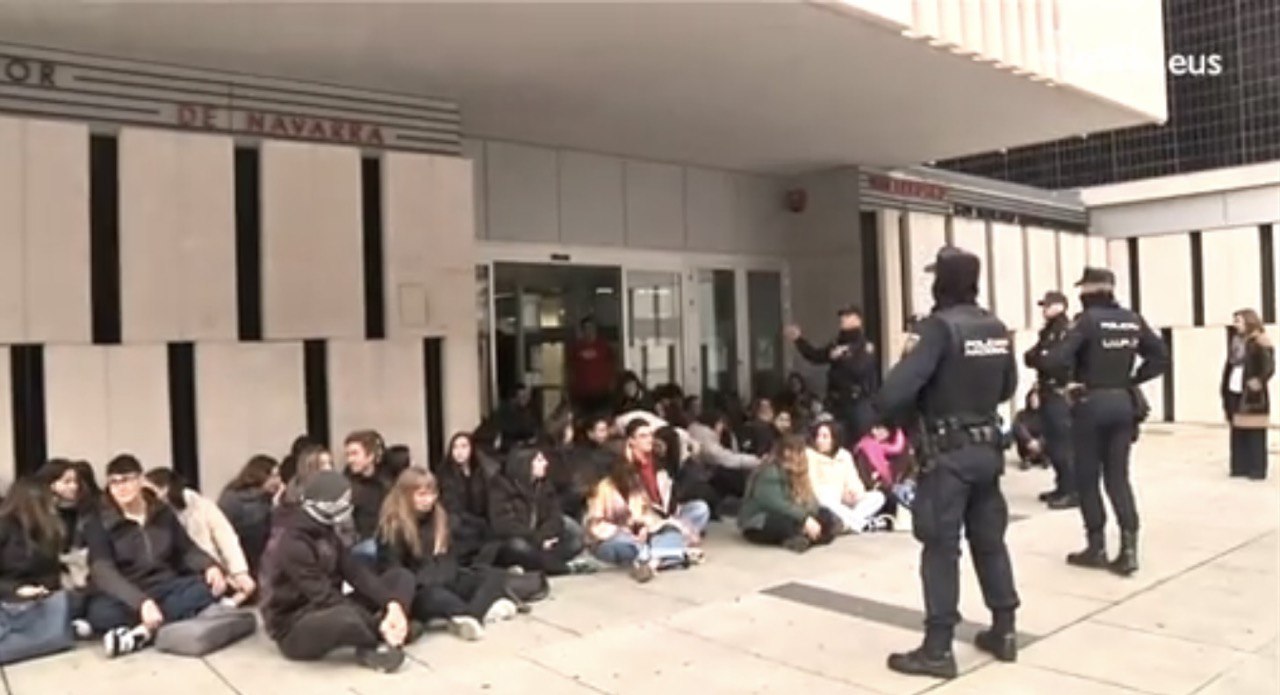"If I had enough time, I would put myself in the sauce."
- On November 10, 2016, Izaskun Arrue, considered Álava’s first flagship, took the road to the sky. On December 4, 1963, several parents took their children home from Arrue. Amaia González de Gamarra, among others. They sowed the seed of today's ikastolas.
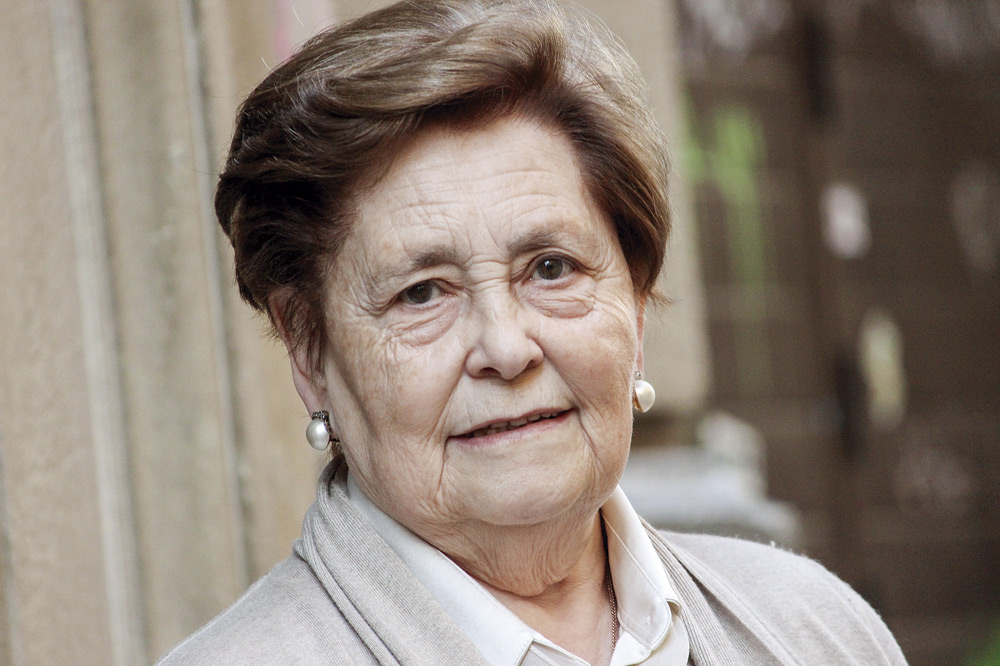
Abertzaleak izan zituen gurasoak Gasteizen, eta abertzale hazi zen bera ere. Abertzalea izan zuen senarra, eta zaletasun berean ditu seme-alabak. Irakasle ikasketak egina 1954an, Espainia hegoaldera destinatu zuten, baina ez zuen hara nahi izan. Etxeko tabernan lan egin zuen, eta hiriko giroa bizi izan zuen han: frankismoa, errepresioa, politika... 1963an, Izaskun Arrueren ikastolara bidali zuen lehen umea. Eta, lehenengoaren pausoan, ikastolara bidea egin zuten Amaiaren gainerako bost seme-alabek ere.
Izaskun Arrue in ARGIA (No. 1970, December 12, 2009) told us a long time ago that parents should have received, and not him, all the merit of that first ikastola in Vitoria-Gasteiz. I mean, you and your fellow human beings. Was he born in 1936 on Painter de Vitoria Street and called Amaia?
My name is Amaia Mertzedes Gregoria, but I have always been Amaia, although at that time no name was admitted in Basque. The war had just begun when I was born. The environment, you'll think about it. Nothing but sweet. My father came to sign me up and enrolled me. There, the man in charge of birth certificates was a great friend of my father, Maison, but there was no way: “Kepa, you can’t give your daughter the name of Amaia!” Then my father said to that House what: “Then don’t give a name!” And he left.
And your name?
I'm going to tell you right away... My father left, and in the newspaper, at the door that the births were announced, they gave me my name “Pedro Elena,” because I came to the world on St. Helena's day. I got Peter from my father and Helena from the nomenclature, and for a long time, until I started teaching magisterium, my name remained in the record. So I realized it quite suddenly after many years. Before I started studying magisterium, I was asked for the birth certificate. Go to the record and there is my name, “Peter”! When I came home, I said to my father, “I’m going to tell Maison right now to fix it!” But then: “Not in vain. Maison has been out of work for a long time.” But his mother had no intention of forgiving. “Do whatever you want, but depending on your personality, it’s best to run your daughter’s name.” And my father said, “But they won’t let me be named Amaia.” And the mother said, “Then Amaia Mertzedes. Also put your mother’s name.” Finally, Grandma said: “From there, also put on our mother’s name.” And so I'm Amaia Mertzedes Gregoria.
My father's name has not been pronounced in vain either: You told me Kepa. The power of the wise name.
His father was the founder of the Basque Nationalist Party of Álava: Pedro González de Gamarra Alava. At home they were also from the Party, and hence the name of their father, Kepa. He worked at the Vitoria-Gasteiz Savings Bank and was always told by Kepa. Pedro González de Gamarra Gracianteparaluzeta was registered. Fervent patriot. He was imprisoned for one year on La Paz Street, between 1951 and 52, due to the strike of the workers. I don't know how far that strike went, but I know it wasn't just Vitoria or Álava, because in addition to those here, they also had Vizcaínos and Giputziak in prison here. I remember their names. Guillermo Acosta, Alberto Ruiz, Koldo Goikoetxea, Antonio Pérez Plaza, Manolo García Andoin... Those who approached from Bilbao were Sarasketa and Urrutia. And from San Sebastian, Larrea, Garaikoetxea, Miner and some other.
Damn it! How do you know those names?
Because I went to jail every day to feed my father. I would go three times a day: I would have breakfast, lunch and dinner. His father was imprisoned between 19 May 1951 and 13 May 1952. Then, even though the father had left prison, some remained inside. We had a restaurant and we were sent to eat those who were still in prison. I was 14 years old and in the morning I began to study teaching. In the afternoon, I worked at the bar in my house. I finished my studies in 1954, in the same Vitoria, in the Old Part, where now are the gaztetxe and the House of the Basque Country, where there are municipal educational services.
What was the atmosphere then like in Vitoria?
Repression. There are no more words to describe it. Look, my father was driven to the head of Catalonia when I was 2 years old and something. As I said, my parents had a bar, and my mother worked there, and so did I. When he returned from the war, his father was punished without work or pay. The Gipuzkoan soldiers were first sent to Vitoria-Gasteiz and then, from here, they were sent from one side to the other. Most of them spoke in Euskera, and my aunt picked me up and put me on the bar, saying, “Tell these young people that sin you have learned.” I said no, my father would scolding me. But my aunt says yes and yes. And finally, I, in a slightly quiet tone, said: “Gora Euskadi Askatuta!”
"It is true that many Basques from Gipuzkoa and Bizkaia have addressed the ikastola, but by then the ikastola from here was already underway"
You remember that...
Yes, and also that when I started studying magisterium, we had to sing Face to Sun with our upper arm. I never had time to sing her. Naturally, I would stay at the door waiting for the people inside to finish singing Face to the Sun. As I was late, I was given a note of error, but I didn't care. They were hard years, even very hard! And the father inside. What were my father going to have in jail for a year? There was no crime of blood, weapons or destruction. I know he was involved in the preparations for the strike, along with Isaiah and Juan Grajales, for example, but I also know that on that day of strike he had an assembly of the savings banks. I know, because I went with him. And we went home from that evening assembly. The next day, the police started arresting the youth to talk between teeth and my father to jail. One year! When I finished teaching, in order to get the degree, I also had to be a phalanx instructor, and I spent twenty-two days in Sobrón, convicted of having my father in jail.
You said you completed your teaching studies in 1954.
But I didn't teach much. It wasn't easy. The teachers here sent us to the south of Spain. For example, I became a professor in Extremadura. And I asked at home what they looked like. And my parents doubted as much as I did. Yes, I studied to be a professor, but I had to go so far. During that time, Master Eharin, near Vitoria, told me that she could make replacements in her school. And he did. I spent two months teaching instead. But no one paid me. So I could not go ahead. At the same time, the tavern of the house was there and there they also needed everything.
At that time, the abbot Pedro Anitua opened the School of Apprentices for the children who finished their studies and went to work. They also opened the girls' club, in Villa Nieves. There was also the abate Ramón Narbaiza, who accompanied Anitua.
I learned from my husband about the things there, that Narbaiza gave religious classes in that Apprenticeship School, but that they talked about this and that, of “making homeland”, of making mountain trips on Sundays, and this and that. Clandestine stuff. Well, then everything was clandestine. I tell you, I told them for my husband, because I hadn't lived that movement, because I was always in the bar and working. For example, the one my husband was going to have, I also met her at our bar in 1952. Lagun Onak was a choir singer and they often came to our house. It was also from the Txirinbil group of dances, and it is not much to say that they were based in our bar. At least the assemblies were held there. A lot of things had been done in the bar, if you were thinking about it. The police also knew something, and sometimes we had to lower the blinds by gray order. I remember once, because Franco was coming to inaugurate the new cathedral, he had become a prisoner to a lot of people, and the kitchen closet was filled with coconuts and blankets, which were made prisoners.
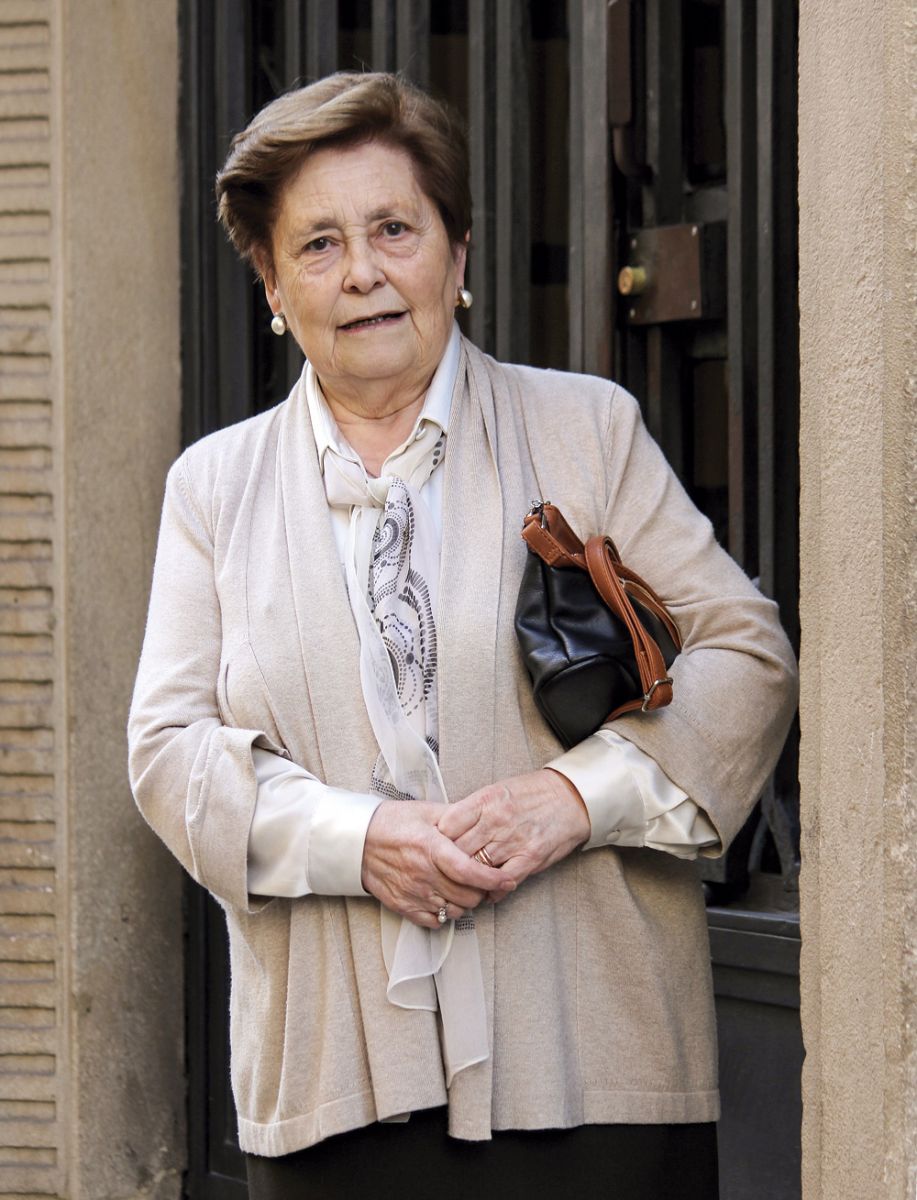
Why did you send the oldest son to the house of Izaskun Arrue to study in Basque in 1963?
One day, our friend of the house, Kepa Grajales, walked into the bar and, talking about this and that, he asked us: “What school do you bring the child to?” He was referring to our first child. “To school? If he's only 3 years old!" At that time, boys and girls started school when they were 5 years old. Kepa says: “We have started to take ours to the house of Izaskun Arrue.” I heard Izaskun's name and got started. We had Izaskun in the bar many times, with her husband, and he knew him. So I asked Kepa the address of Izaskun's house, and that's where our first son, Pedro. Izaskun started speaking in Basque, I told him that I did not know, but that, despite that, I wanted my son to know in Basque. She nodded, and so on.
What did their relatives say?
What were they going to say? You're happy. My father, for example, was in the batzoki at Arkupe Square before the war. There, they also learned Basque, and they knew something. He talked to his grandson in Euskera what he could. After his first son, Patxi, also the second, went to Izaskun's house. The third, Amaia, ran at the ikastola of Stibaliz Avenue, along with Jon and Mikel, who were later born. The last one, Asier, studied at the ikastola Olabide de Lasarte.
The first students started at Izaskun's house, and then, very small, and as you said, they settled on the avenue of Stimubaliz. At that time, he left his teaching degree to the Ikastola.
To be used in the legalization of ikastola. But in addition to me, others also left the Ikastola as a professor. Maria Teresa Fernández de Pinedo, for example. There were also two other sisters, Jone and Miren Arbulu, who learned with us as teachers. As for leaving the title, Peli Martín Latorre, who worked with my husband, also came to me. I had no objection to dropping the title. Peli said: “And someday you’ll also have to come to the ikastola, by the time the inspector comes.” And so, I remember spending several afternoon as a professor at the ikastola of Estibaliz, with the real lady.
It is said that in the early 60s of the last century the people who came from Gipuzkoa and Bizkaia to Vitoria with the industry changed the environment of the capital, brought the Basque.
I don't know. Although many Basques came from Gipuzkoa and Bizkaia, much more came from the peoples of southern Spain. It is true that many Euskaldunes from neighbouring territories devoted children to ikastola, but by that time the ikastola had already been launched. Those who started the Izaskun ikastola were all from here. Arriola, López de Lacalle, Arantzabal, Grajales, we... The only one who came from outside was Miss Izaskun herself, Navarra.
And to see the current environment, the children, young people and adults today, to see Basque ... What does your interior say?
I'll tell you, too. If I was the age I was then, and the time we were, I would get really stuck in the salsa. My older son wouldn't leave me, but he would enter the trap. She has to come in, but she doesn't leave me. We've always been Basque. Always. Despite all our divisions, always Basque. I remember once our mother talked to Luis María Sánchez Íñigo. Luis Mari, very excited, my mother said: “Yes, you’re right, Luis Mari, but you can’t get everything from day to day, all of a sudden. We must move forward slowly. Independence? Yes, no doubt, but let’s go step by step.” I am of the same opinion, so what will I say to you?
“Aitaita Arabako EAJren fundatzailea, aita eta izeba Margarita ere Alderdikoak. Amak ere nahi izan zuen Alderdian sartu, baina ez zioten utzi, Kubako naziotasuna zuelako. Gurasoak hantxe izan ziren lanean, eta hantxe jaio zen nire ama. Hargatik ez zioten Alderdian izena ematen utzi, Franco hil ondoko egoera politiko berria heldu arte”.
“Bera izan zen Gasteizko ikastola hartako lehen andereñoa, baina, azkenean, baztertu egin zuten, edo bere burua baztertu zuen, euskara batuarekin ados ez zegoelako. Elkar ezagutzen genuen, eta batak bestea estimatzen genuen. Oroitzen naiz nola esaten zidan munduan korrika gehien egiten zuen emakumea nintzela. Izan ere, bateko etxea, besteko taberna, eta seme-alabak batetik bestera beti... ez nintzen gelditzen”.
“Bizimodu zaila izan dut, oso zaila ere, baina, gaitz erdi, saria jaso dut azkenean. Inoizko seme-alabarik onenak ditut, errainik onenak, suhirik onena, eta munduan izan litezkeen bederatzi bilobarik zoragarrienak. Horixe dut sari!”.
Zinez txalogarria, eskolako irakasle talde jakin baten borondatez, eta zenbait gurasoren inplikazioz, A ereduko ikastetxe estigmatizatu bat D ereduko eskola bilakatzeko abian jarri duten prozesua Gasteizko Judimendi auzoan. Honela, posible egiten ari dira Araba, Bizkaia eta... [+]
Elgarrekin izena du Duplak egin duen aurtengo abestiak eta Senpereko lakuan grabatu zuten bideoklipa. Dantzari, guraso zein umeen artean azaldu ziren Pantxoa eta Peio ere. Bideoklipa laugarrengo saiakeran egin zen.
Aiaraldeko hainbat irakaslek mezua igorri diete ikasleen guraso eta familiei, dagoen informazio zurrunbiloan, grebarako arrazoiak modu pertsonalean azaltzeak euren borroka eta lanuztea hobeto ulertzeko balioko dielakoan.
Grebaren bezperan Hezkuntza Sailak “edukirik gabeko” mahaia deitu zuela eta sindikatu deitzaileak “errespetatu gabe” akordioa “antzezteko” gutxiengoa duten sindikatuak “erabili” nahi izan zituela salatu ostean, beste bi greba... [+]
Since the adoption of the new Education Law for Álava, Bizkaia and Gipuzkoa, we are hearing/reading again and again that education will be free from now on. We have listened to different actors, including the Department of Education, and in the interviews we offer to the media,... [+]
Behin batean, gazterik, gidoi nagusia betetzea egokitu zitzaion. Elbira Zipitriaren ikasle izanak, ikastolen mugimendu berriarekin bat egin zuen. Irakasle izan zen artisau baino lehen. Gero, eskulturgile. Egun, musika jotzen du, bere gogoz eta bere buruarentzat. Eta beti, eta 35... [+]
Eric Etxartek Seaskako lehendakarikide ardura hartu berri du urte hatsarrean, Antton Etxeberri eta Sophie Layusekin batera. Peio Jorajuriaren lekukoa hartu dute hirurek, eta Lehendakarikidetza taldea osatu dute.









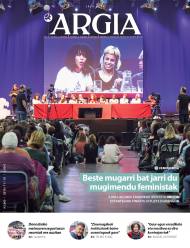

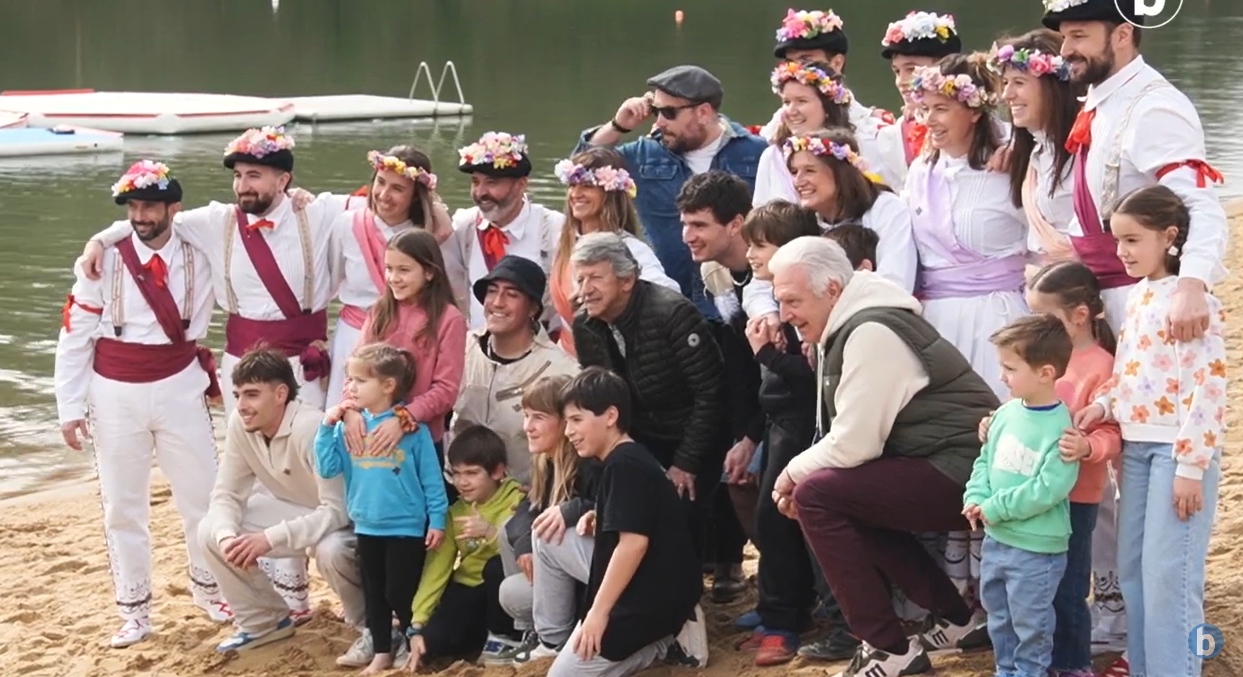
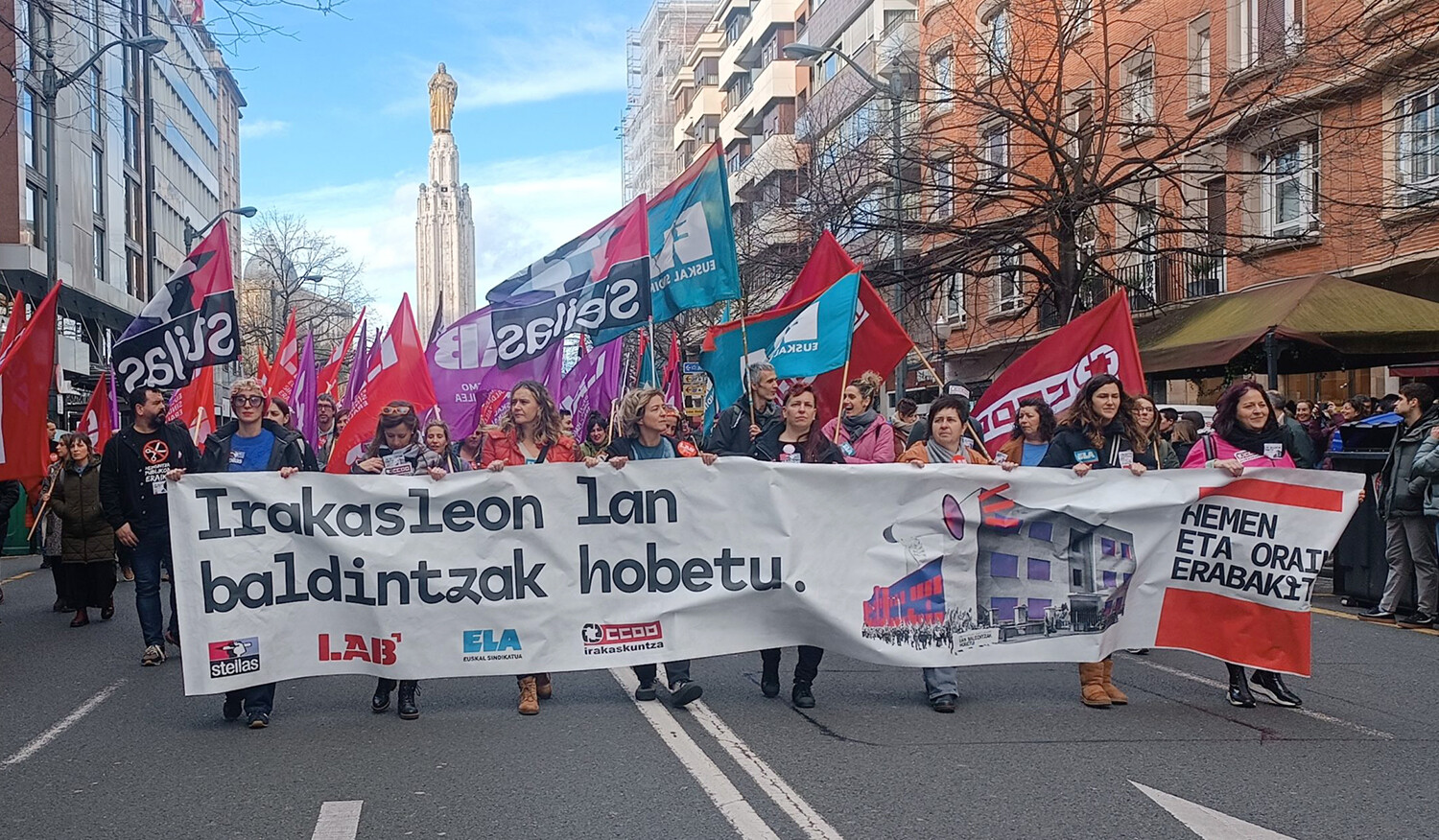
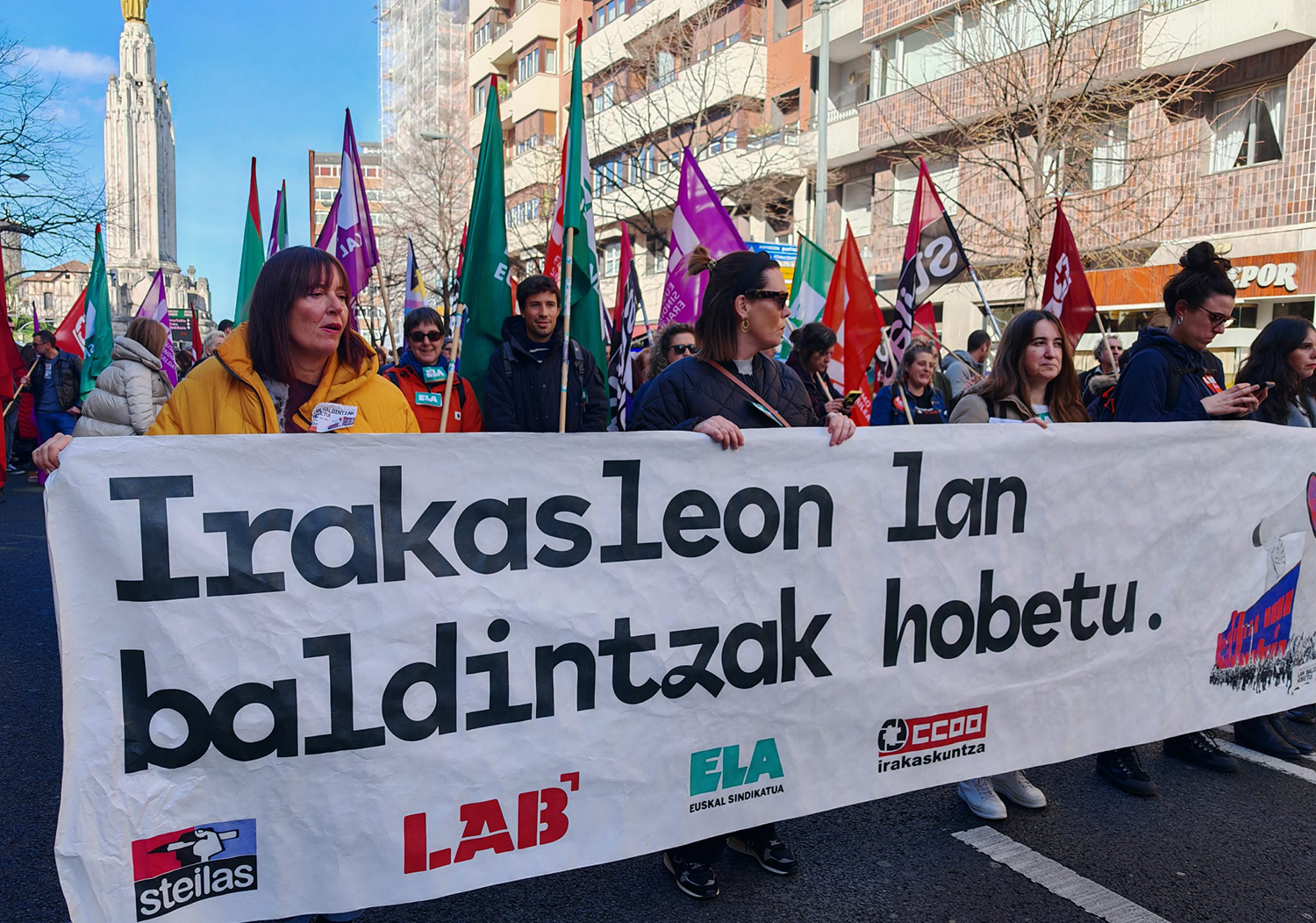
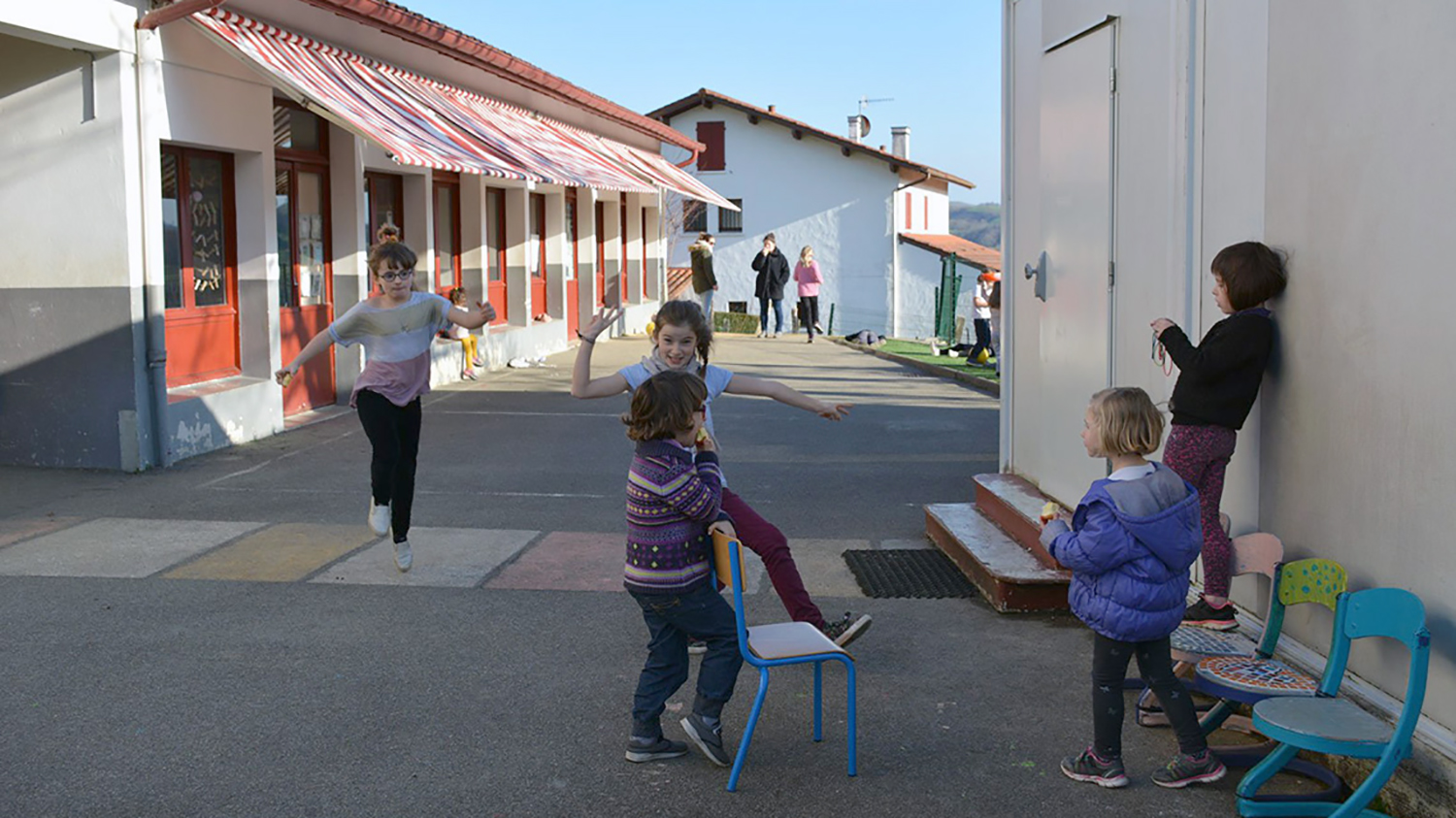
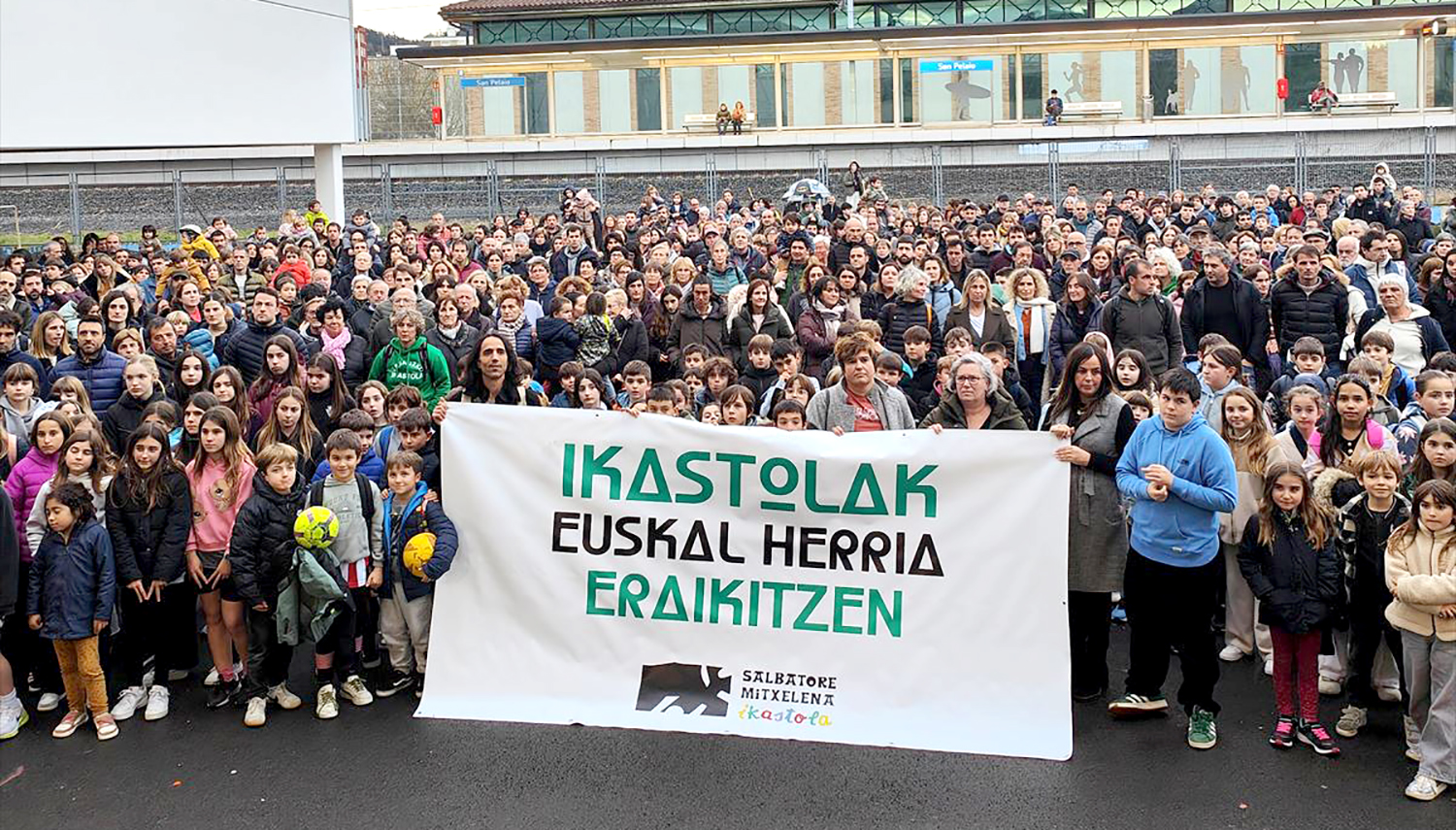

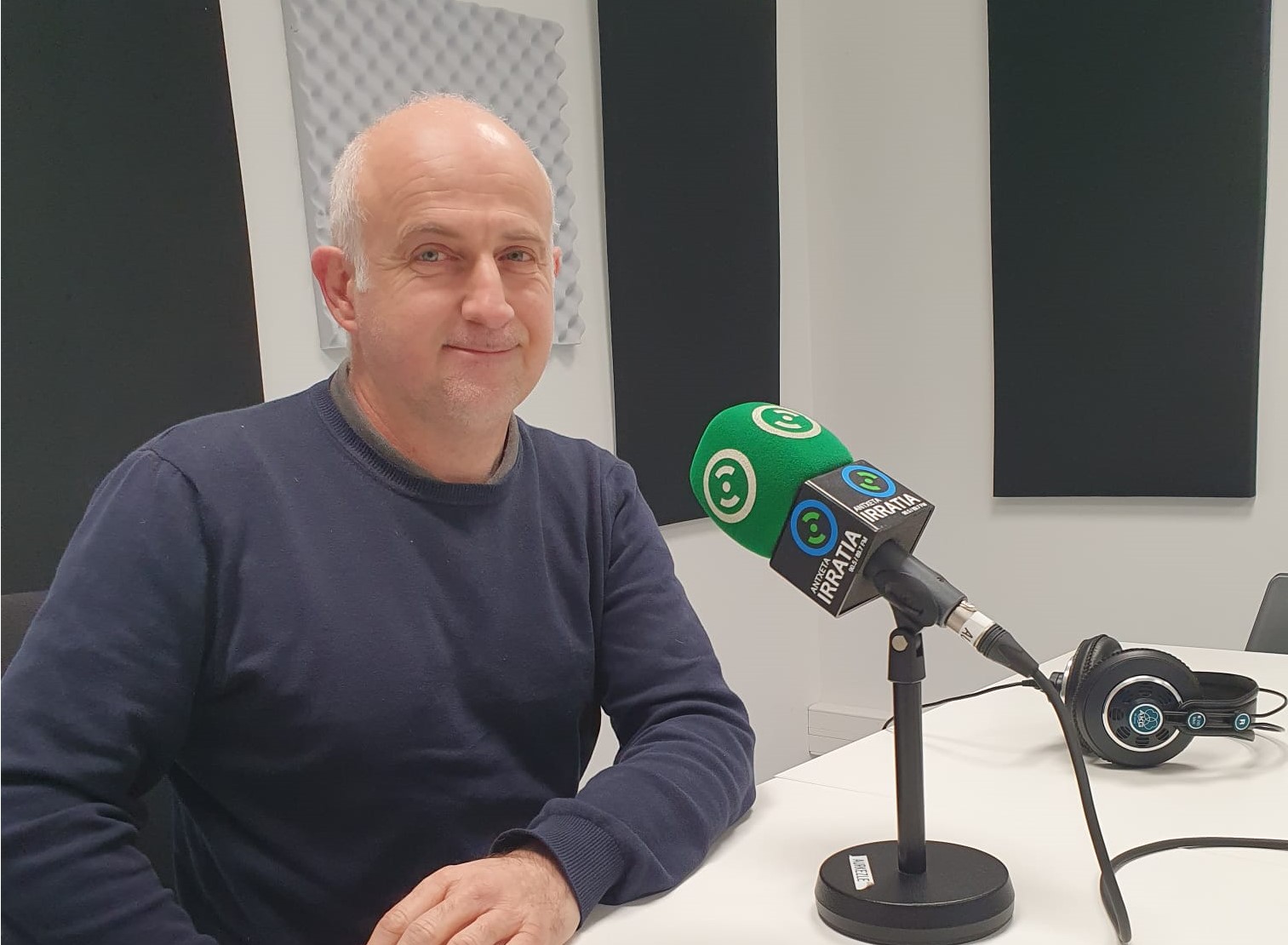
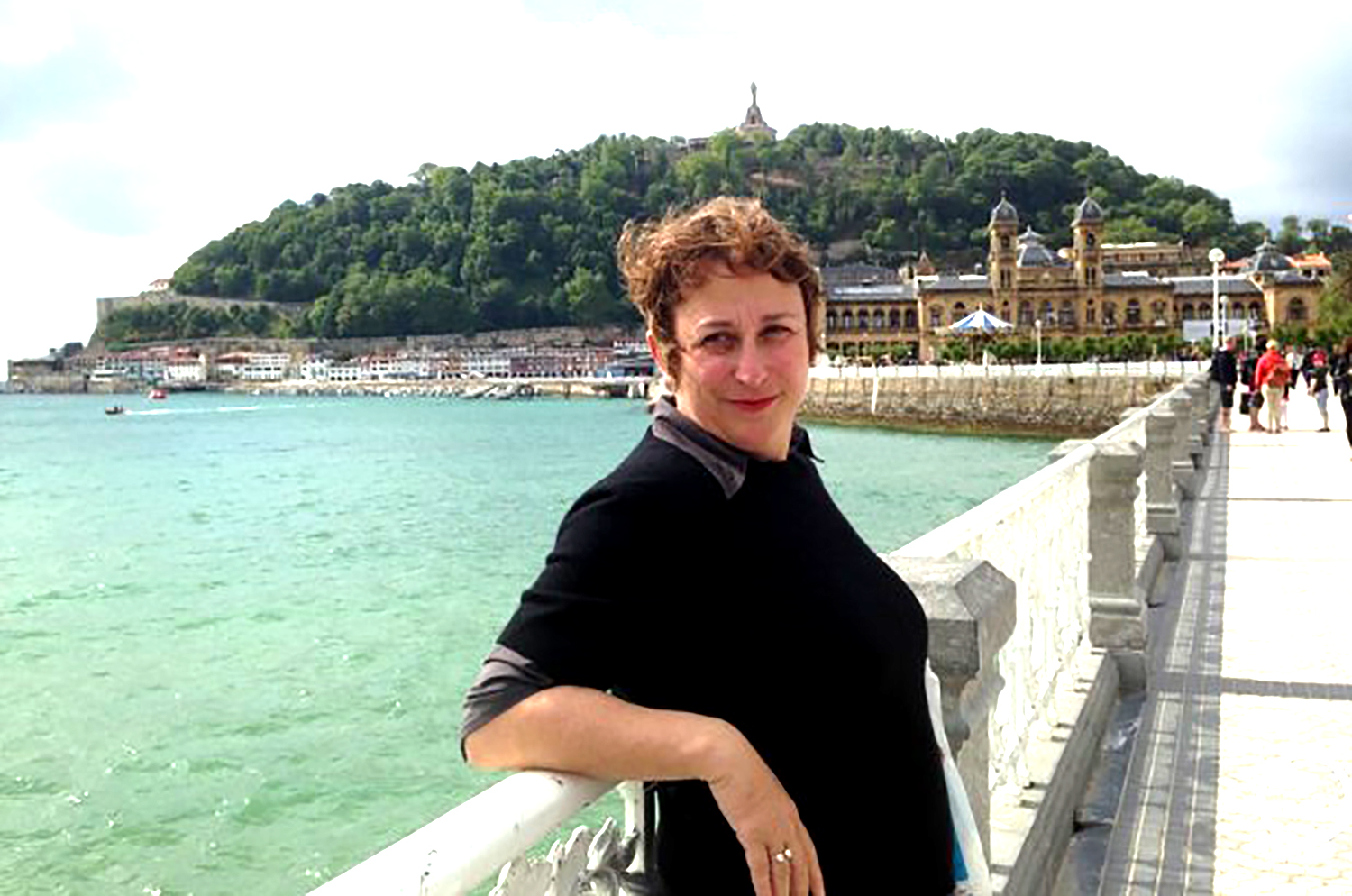
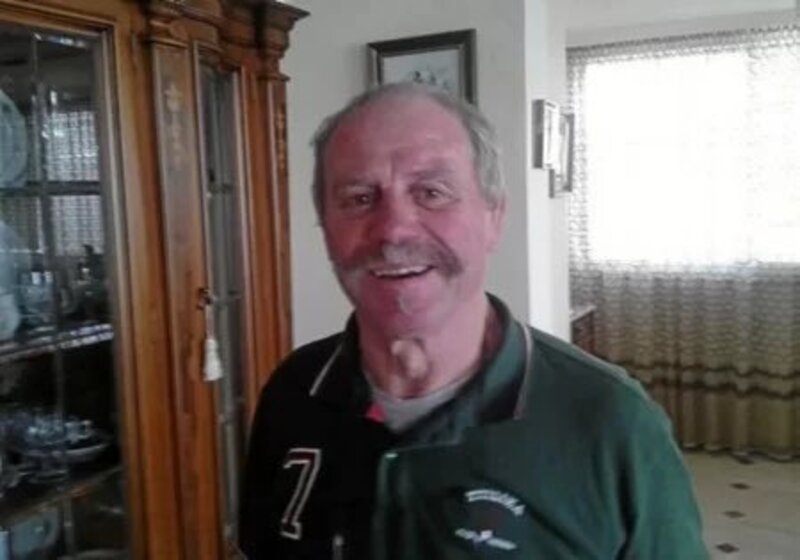

.jpg)
.jpg)
